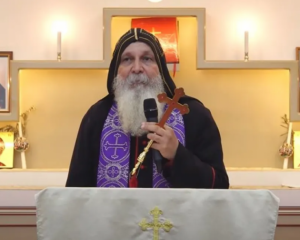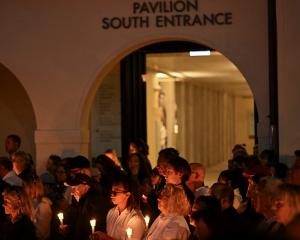Pro-British paramilitaries shot Pat Finucane, who had acted for members of the Irish Republican Army (IRA) guerrilla group at the height of Northern Ireland's "Troubles", 14 times in front of his wife and three children at his Belfast home.
An independent report issued on Wednesday (local time) severely criticised members of the British intelligence services and army and the Northern Irish police for colluding in the killing and covering it up, although the author, top lawyer Desmond de Silva, found no evidence of an institutional conspiracy.
Protestant-dominated security forces were dogged by Catholic allegations of collusion with pro-British paramilitaries during the IRA's 30-year armed struggle to end British rule over the province and unite with largely Catholic Ireland. The accusations have already been borne out in previous reports.
"This report makes extremely difficult reading," Cameron, who commissioned the report and had previously accepted that there had been a degree of collusion and apologised to Finucane's family, told parliament.
"Sir Desmond is satisfied that there was not an 'over-arching state conspiracy to murder Patrick Finucane' but, while he rejects any state conspiracy, he does find shocking levels of state collusion."
"The collusion demonstrated beyond any doubt by Sir Desmond - which included the involvement of state agents in murder - is totally unacceptable ... Collusion should never, ever happen."
Quoting from the report, Cameron said the killers had received active help from members of the police, army or intelligence services to find Finucane, obtain a gun, dispose of it, and then avoid justice as investigations were obstructed.
De Silva, who was given access to secret documents, said two men involved in facilitating the killing had been in the pay of security services at the time of Finucane's death, and a third who was later convicted of the murder had become an agent once his involvement became known.
TRIALS
One of the agents, Brian Nelson, was jailed for 10 years in 1992 while a case against the other, William Stobie, collapsed in 2001. He was shot dead two months later.
Ken Barrett, who like Nelson and Stobie had been recruited from within Protestant paramilitary ranks, was tried and convicted of the murder in 2004.
De Silva came down heavily on the Protestant-dominated Royal Ulster Constabulary (RUC), since replaced by a new force under the terms of a peace agreement, and the army's Force Research Unit, as well as British politicians of the time.
"My overall conclusion is that there was a wilful and abject failure by successive Governments to provide the clear policy and legal framework necessary for agent-handling operations to take place effectively and within the law," he wrote.
A report in 2007 found that during the 1990s top officers in the RUC allowed Protestant paramilitary informers to carry out murders for more than a decade.
Finucane's widow Geraldine maintained her demand for an independent public inquiry, one that has been backed by the Irish government, and said yet another British government had "engineered a suppression of truth" about her husband's death.
"This report is a sham, this report is a whitewash, this report is a confidence trick dressed up as independent scrutiny. But most of all, most hurtful and insulting of all, this report is not the truth," she said in London.
"The dirt has been swept under the carpet without any serious attempt to lift the lid on what really happened to Pat and so many others."
Cameron repeated his apology to Finucane's relatives but, mindful of the 200 million pound cost of the public inquiry into Bloody Sunday - the shooting dead of 13 civil rights marchers in Londonderry by British troops in 1972 - he said he would not order a full public inquiry.
He said policing and security in Northern Ireland had been transformed in recent years, but that 10 days of street violence in Belfast showed that progress since a 1998 peace deal could not be taken for granted.
"We will not allow Northern Ireland to slip back to its bitter and bloody past," he said.












